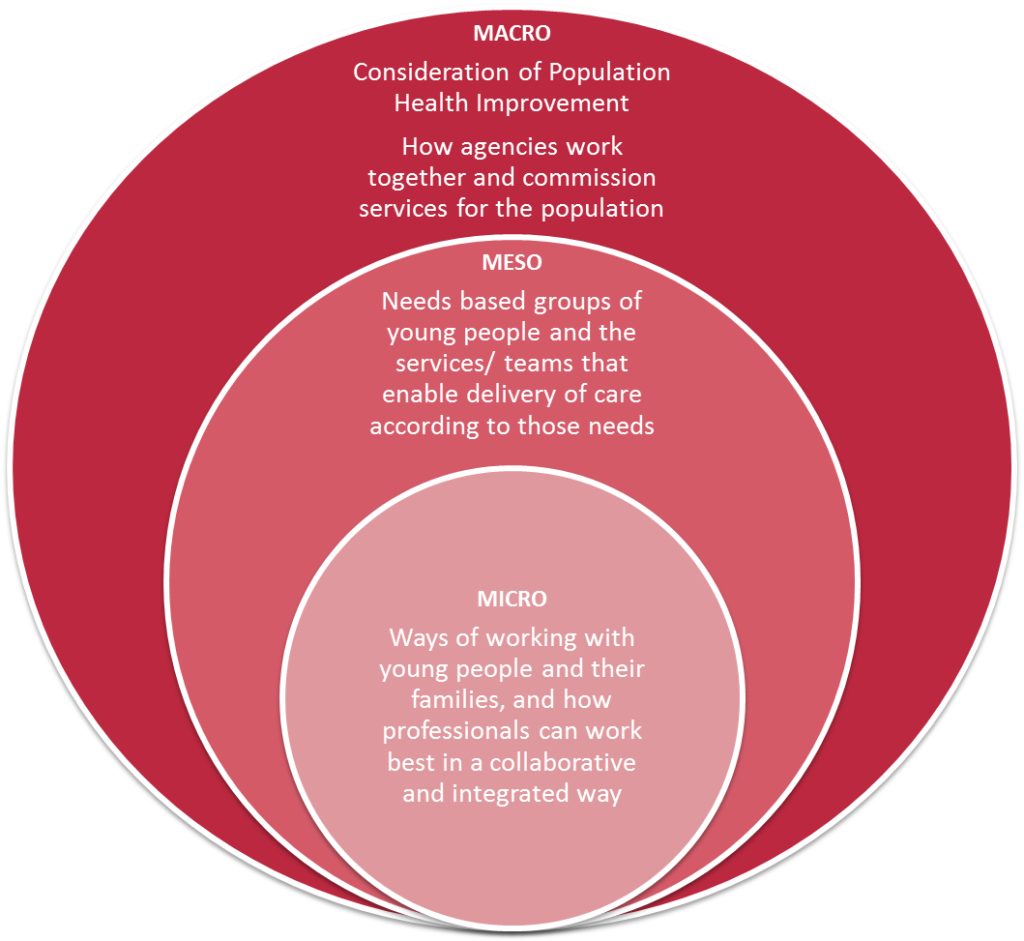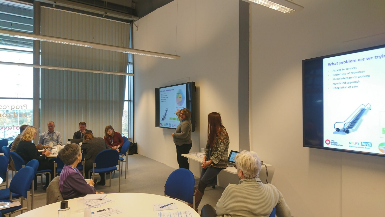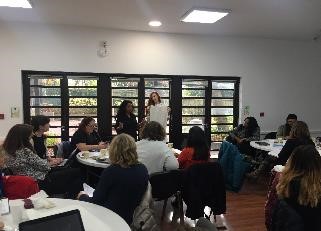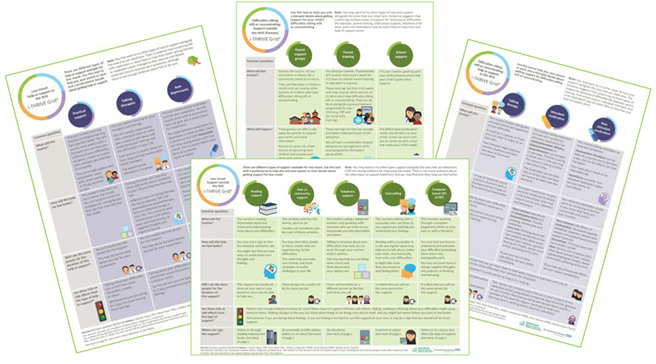The National i-THRIVE Programme spoke with Claire Alp, Senior Public Health Specialist, Public Health Service, London Borough of Havering Council, and Diana Daniel-Dawson, Havering CAMHS, North East London Foundation Trust, about stakeholder engagement in complex systsems.
Download this implementation story.
Havering have engaged with stakeholders at every level of the system as part of the implementation of the THRIVE Framework for system change (Wolpert et al., 2019) in the borough. However, with so many different organisations to engage, let alone individual practitioners, the task can be daunting.
How did Havering overcome this challenge?
Effective integration between agencies in order to support children and young people is a key principle in the THRIVE Framework, and a core value of many professionals. However, whilst many want to work more effectively with other agencies this is often dependant on the quality of individual relationships. Recognising that in complex systems the personal relationships held between agencies are key to effective interagency work, Havering prioritised building these connections at every level of the system.

The macro level:
The macro level refers to the way in which services are commissioned to meet the needs of local children, young people and families and how different agencies within the system work together to support them.
Led by Public Health, Havering set up a multi-organisational transformation steering group which had representation from;
- Child and Adolescent Mental Health Services (CAMHS)
- Clinical Commissioning Group
- The Voluntary Sector
- Social Care
- Youth Offending
- Attendance and Behaviour Support
- Metropolitan Police
- Children’s Centres
- Alternative Provision (education)
- Early Help
- Schools
- Youth Services
The steering group met monthly to consider the implementation of the Local Transformation Plan (LTP) and how funds could be allocated to support a comprehensive children’s mental health offer.
Very early on the group decided that if they wanted to take a truly integrated approach to service delivery they would need to spend some time understanding; what provision was on offer, how it could be accessed, and making sure that all the relevant people in the borough knew about it – particularly those education settings where children and young people ordinarily go, such as schools.
To achieve this, services were invited to present their work to the group at each meeting. Some of these had been funded as part of the LTP and some hadn’t. The information was collated into a spreadsheet and this was disseminated regularly by the steering group attendees both, within their services and via various school forums. It was also used by CAMHS to shape how they targeted schools with their outreach work. Uptake of these services, particularly the borough’s training offer, was tracked by the Public Health team so that targeted communications could be sent to schools that weren’t engaging with the provision on offer.
A pathway tool was also created for schools as a result of the identification at this meeting, that schools would refer to several agencies at once because they were unsure which one would best meet the need of the child. The tool was disseminated to schools via CAMHS outreach work, detailed below.
The steering group members recognised that whilst in depth knowledge of the system had grown at a strategic level as a result of attending the group, the knowledge of front-line practitioners should also be supported. So, it has committed to funding regular networking and knowledge sharing events, which sought to:
- Improve understanding about what each agency did, and did not do – helping to demystify false beliefs agencies might have about each other
- Enable the system to identify how it can work together better around particular topics
- Ensure front line practitioners have a forum to share knowledge about what is on offer in the borough
Increase skills, knowledge and capacity across the whole system regarding how to deal with cases.
The meso level
The meso level refers to the different services that support children, young people and families and how they interact with each other.
The transformation steering group has given the different services an opportunity to hear from each other and ask questions about how they can work together. This has been further enabled by:
- Outreach work to services undertaken by Havering CAMHS
- As a result of delivering organisations having a better understanding of partners across the system, there is a consistent message throughout training and in the support provided to schools
- Stakeholder engagement events
- Schools link role – a senior clinical role to support schools’ senior leaders think about mental health at multiple levels of the school system, both within individual schools, and across the borough.
The outreach work has been undertaken by the CAMHS Support Time and Resilience (STAR) workers to build connective links across the system which better enable appropriate signposting and joined up work on cases. As with the steering group the STAR workers have approached this by ensuring individual schools are linked into the best services for them, based on the children and young people (CYP) they are most worried about. This is achieved via regular visits to the schools and services to review progress and facilitate greater cross-sector liaison. By introducing schools to services according to need, they avoid schools feeling overwhelmed with large numbers of new connections to maintain, and build capacity in the system.
During training delivered to school staff (e.g. Promoting positive mental health in the classroom, Mental Health First Aid, Mental Health Champion training), delivering organisations are able provide consistent messaging and signpost to each other for follow-on training and support.
CAMHS have also held several stakeholder engagement events. These have included:
- Inviting wider agencies to team away days
- Inviting agencies to implementing the THRIVE Framework workshops and shared learning events
- Specific events on understanding interagency approaches to managing risk
- Whole system stakeholder events to launch the borough’s wellbeing hubs.
Attendees at these events have reported a greater understanding of the work of other agencies, a significant increase in their working knowledge of the THRIVE Framework and the implementation plan.
Stakeholder engagement events:


The micro level
The micro level refers to the interactions children and families have with their clinicians or support workers.
Havering have looked at the micro level in four areas:
- Shared decision making via the introduction of i-THRIVE Grids
- New approaches to discharge
- Supporting schools to support young people in the school setting
- Attending parent forums and coffee mornings
i-THRIVE Grids were introduced to the service in 2018 following a training focused on how to use the grids to support shared decision making. The training positively increased self-rated scores of knowledge and confidence regarding shared decision making by 36%.
‘Shared decision making is important and we should strive to work in this way and be flexible to make it work,’ training attendee.
i-THRIVE Grids:

The THRIVE Framework encourages agencies to consider the ending of service contact from the start of an intervention, including an emphasis on transparent conversations about how both those helping and those seeking help will know when “enough” help has been provided. Havering CAMHS were aware that despite the need to consider endings in a more robust way, it was not something the clinicians felt comfortable within practice. They trialled a range of new approaches to discharge which are discussed in depth in the ‘Discharge, Demand and Capacity in Havering CAMHS’ case study. As a result, one clinician reflected that, ‘In my own practice I was much more upfront with talking about discharge right from the start. Now I hope that young people find they’re much clearer on what the offer is.’
As part of the STAR workers outreach discussed above, Havering CAMHS supported schools to better support young people within school. This is discussed in greater depth in the ‘Getting Advice and Signposting in Havering CAMHS’ case study. An additional outcome of this work has been to setup a new in-school peer mentoring service, guidance for school staff on how to talk to young people about mental health, signing schools up to a CORC initiative which is developing a wellbeing measurement framework for students. In fact, inappropriate referrals from all schools decreased from 71.4% (from January 2017 to December 2017) to 31.9% (from January 2018 to July 2018), and from schools with whom a pathway tool had been trialled from 90.5% to 24.4%. NB: It is important to note that in September to December 2017 the service was already testing new ways of working with schools – prior to this inappropriate referrals from schools averaged 98.3%, and for the months of May and June inappropriate referrals from schools had dropped to 0%.
The schools link worker has also been attending parent forums and parent coffee mornings to develop closer relationships with parents and carers.
Next Steps
A lot of work has been done in Havering to build interagency connections at multiple layers of the system.
‘We plan to begin holding parents drop in, in partnership with adult services, and base these in schools. We are also targeting secondary school open evenings, and Year 6 assemblies to prepare that cohort and their families for transition.’ Diana Daniel–Dawson, Havering CAMHS Lead.
‘Funding for training and support around mental health is increasingly coming from multiple sources. Havering’s transformation steering group will continue to be pivotal in providing a forum that brings together organisations and providers to streamline their offer to school staff, pupils and parents.’, Claire Alp, Public Health, London Borough of Havering Council.
If you would like to find out more about stakeholder engagement in a complex system please contact Claire Alp at: Claire.Alp@havering.gov.uk and Diana Daniel-Dawson at: Diana.Daniel-Dawson@nelft.nhs.uk.
Edited by the National i-THRIVE Programme Team.
Written January 2019.